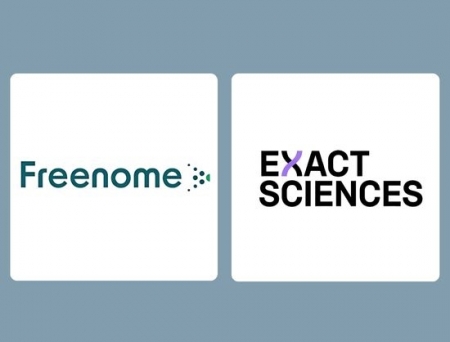Freenome Partners with Exact Sciences to Commercialise Blood-Based Colorectal Cancer Test

Freenome, an American company focused on early cancer detection using blood tests, has entered into an exclusive license agreement with Exact Sciences to advance the commercialisation of its colorectal cancer (CRC) blood-based screening test, including the US commercial rights and the underlying technology.
Freenome retains the rights for its CRC blood test when it is ordered in combination with additional cancer screening tests, including for lung and more than 10 other initial cancer indications the company is pursuing.
Exact Sciences, a molecular diagnostics company headquartered in Madison, Wisconsin, will leverage its commercial infrastructure to accelerate adoption of the CRC blood test. This includes access to nearly 400 health systems with EMR integration, over 865 in-network payers, more than 260,000 ordering physicians, and relationships with millions of patients who have previously been prescribed Cologuard.
Initially, Freenome will manage test processing, analysis and return of results while continuing to work with healthcare organisations to identify patients who are eligible for multiple tests.
“We are excited to enter into this agreement with Exact Sciences, which represents a pivotal moment in our mission to detect cancer in its earliest, most treatable stages,” said Aaron Elliott, CEO of Freenome.
“With this agreement, our CRC blood test – which we believe is best in class, if approved – will be available much sooner to millions of patients. Additionally, Freenome will be able to augment our commercial reach and integration into primary care workflows, as we advance the development of our multiomic early cancer detection platform with the additional capital.”
Kevin Conroy, chairman and chief executive officer of Exact Sciences Corp, noted that this agreement accelerates their ability to bring new solutions to market.
“As an additional option to Cologuard Plus, this enhances our reach to unscreened patients. By integrating with our ExactNexus technology platform and commercial infrastructure, we’re positioned to scale quickly and drive meaningful impact,” he added.
The agreement includes: an upfront payment of USD 75 million; USD 200 million in milestone payments associated with FDA first-line approval of the CRC blood test and a future test version; USD 500 million if the test is rated as an A or B test in the United States Preventive Services Taskforce (USPSTF) guidelines; royalties on test sales (expected to ramp to 10 percent once gross margins hit certain targets); USD 20 million in funding for joint R and D development expenses leveraging the technology for three years; and an equity investment of USD 50 million.
Freenome will also have access to all multimodal data from patients to power future AI/ML models across multiple cancer indications.
“Population-level CRC screening is the gateway for our broader vision of personalized early cancer detection and, ultimately, disease detection beyond cancer,” said Riley Ennis, Freenome’s co-founder and chief product officer.
“This partnership gives us the commercial scale and real-world data we need to improve our existing tests and accelerate development of the 10-plus other cancer types in our pipeline, and then expand from there,” he added.
In a study involving 48,995 average-risk adults, Freenome’s CRC screening test detected 81.1 percent of colorectal cancer – including 63.5 percent at stage 1 – and 13.7 percent of advanced precancerous lesions (APL), with a specificity of 90.4 percent.
An improved version of its CRC test has shown even stronger performance in CRC and APL detection.
Freenome is in active discussions with the FDA and plans to submit a supplemental premarket approval application for the next-generation test, following the approval of the first version.
Colorectal cancer is the second leading cause of cancer-related deaths worldwide. While early detection can lead to a survival rate of over 90 percent, more than 40 percent of screening-eligible adults are not up to date with current screening guidelines.
Expanding access to less invasive and more convenient screening options—such as blood-based tests—has been shown to significantly improve screening participation.
Cancer screening test Cancer-related deaths Colorectal Cancer Blood Test Exact Sciences Freenome Its colorectal cancer
Last news about this category



We use our own and third party cookies to produce statistical information and show you personalized advertising by analyzing your browsing, according to our COOKIES POLICY. If you continue visiting our Site, you accept its use.
More information: Privacy Policy














